Food writer, recipe developer, and stylist Monifa Dayo takes us on a trip around the US to visit six food industry professional chefs of color whose work earns praise from locals and visitors alike. Pack your bags…and let’s eat!
6 Chefs of Color to Travel For
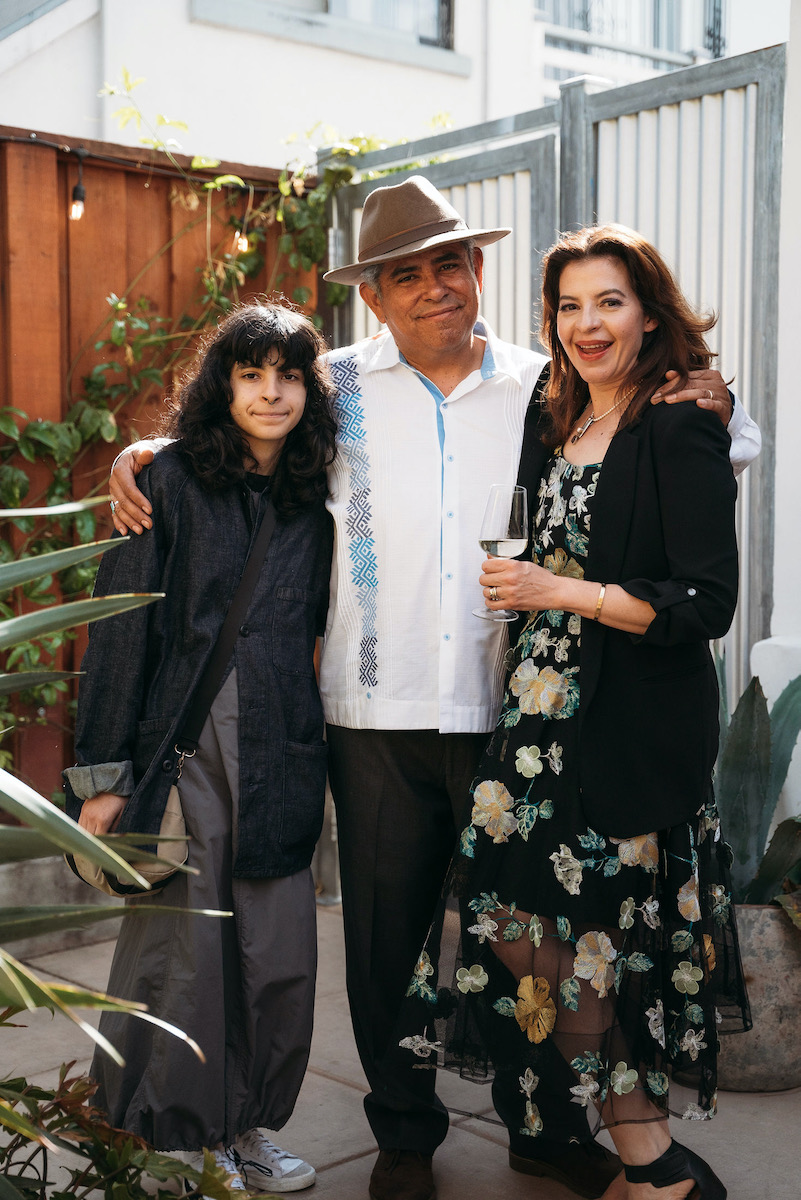
Dominica Rice of Bombera
Oakland, CA
More than just a chef, Dominica Rice is a storyteller, weaving her culture into every dish she serves. Each meal invites you to journey into the richness and diversity of Mexican cuisine. Her cuisine does a masterful two-step with quintessential California and authentic Mexican traditions. From the first glance, Bombera transports you to the vibrant open-air markets of Tulum with the colorful zigzags of papel picado.
Rays of sunlight stream through floor-to-ceiling windows to kiss the faces of fashionable bar guests engaged in conversation over an equally stylish pomelo cocktail. It’s definitely a vibe. The open kitchen invites you into the process of fresh tortilla making while rotisserie chicken roasts, all with chef Dominica at the helm. She’s like your favorite auntie: full of life and bursting with the excitement of seeing you. “Bombera means firewoman,” she says. Because the building is a newly renovated vintage fire station, it’s a fitting name.
What matters most to Dominica? Neither fame nor fortune appeared in one of her top three answers. However, culture, tradition, and a dedication-to-process were standouts. Hailing from a Mexican American lineage of migrant farmers where family and devotion to elders are paramount, and community is a fundamental value too. “For us it’s very personal,” says Rice. You feel this sentiment in her unconventional green mole, the development of which required dedication. To build and sustain trust with her following, Dominica shared that, “You have to listen to what people want and need.” No doubt her six-year tenure at the notable Chez Panisse under the tutelage of famed conservationist, Alice Waters, bolstered her confidence to cook food that is straightforward, tasty and full of integrity.
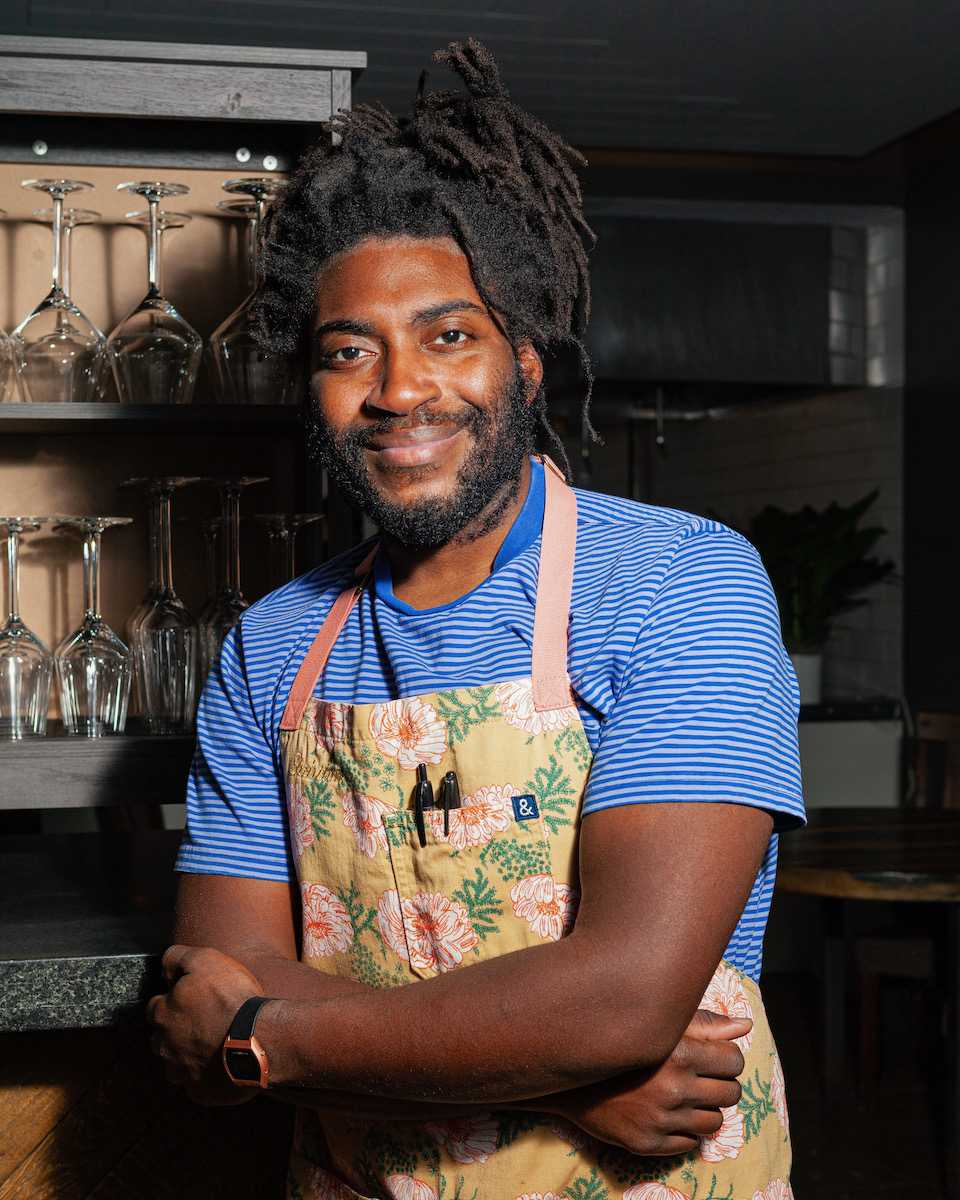
Christian Hunter of Atelier
Chicago, IL
Step into the mind of a culinary creative whose existence unfolds at the diasporic intersectionality of Southern fare and New American cuisine. Christian Hunter draws inspiration from his origins nestled afoot his grandfather in summer gardens tending to stubborn Kentucky weeds. Or, his line cook days delicately plating dishes boasting cured salmon roe and soft herbs. This paradox is expressed with great beauty at Atelier. It’s a 650-square-foot fine-dining, folk-cuisine restaurant nominated in 2024 for a James Beard Award as Best New Restaurant for the Midwestern Region. When you visit, leave your personal preferences at home and relax into chef’s New American fare infused with unexpected global influences. For instance, the first four dishes of his twelve course prix fixe menu require the use of hands as utensils.
Lauded executive chef Christian believes that, “Black food is American food.” Such a direct and unapologetic statement demonstrates his belief that, “ . . . no one controls who cooks whose food.” Paying homage differs from culinary appropriation. To ensure his philosophy can affect positive change, the only natural progression for Christian was to become a part of Atelier’s ownership group at the tender age of thirty-four. His first order of business is a passion project in tribute to his mother called La Verne’s, a brasserie-style, seasonal, à la carte menu featuring more options and a softer price point. Think Atelier’s younger, hotter sister — footloose and fancy free.
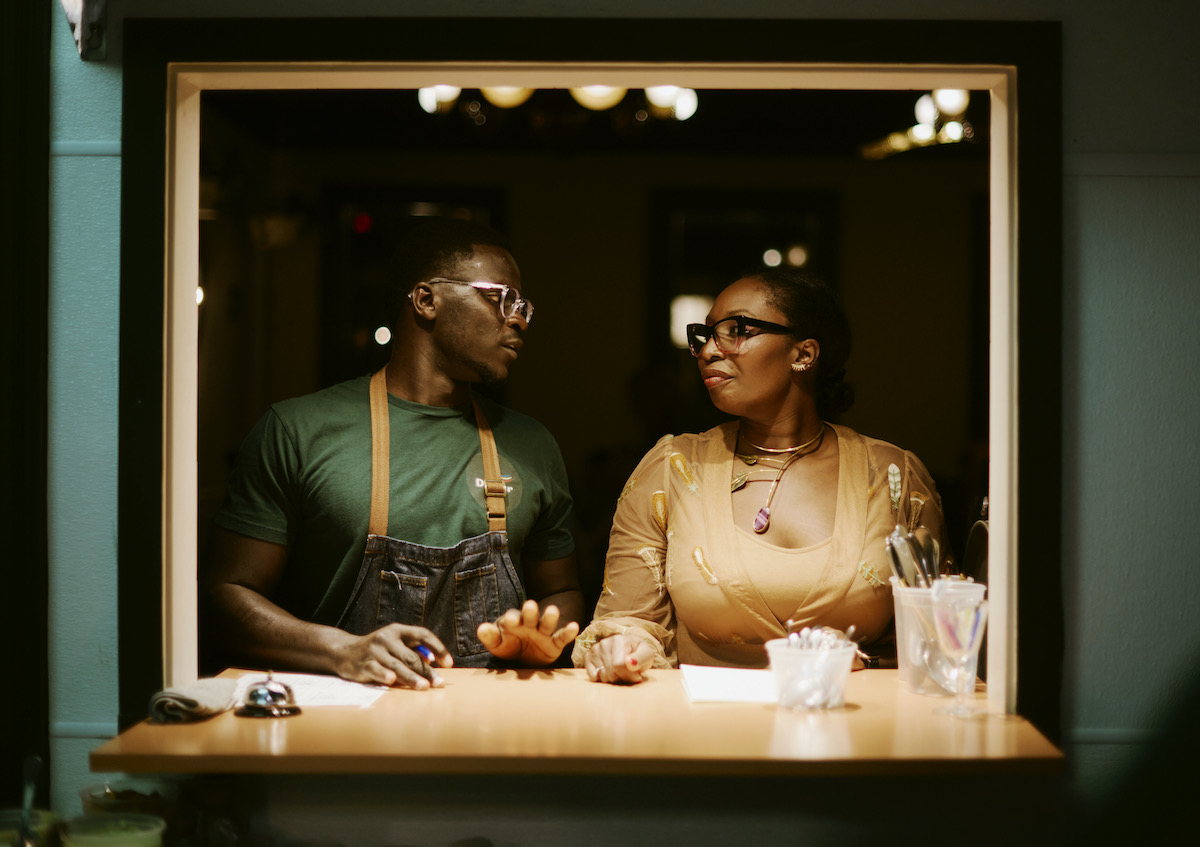
Serigne Mbaye of Dakar NOLA
New Orleans, LA
When you look up multi-tasker in the dictionary, Serigne Mbaye’s charming-yet-stern face should claim a dominant space in bold. With four languages and a few dialects under his belt—shapeshifting is second nature. He uses his variations in speech as an effective tool to, “ . . . understand diversity in a way that others can’t.” As chef and co-owner of Dakar NOLA, Serigne’s Senegalese heritage poses as the engine while the trademark seafood of New Orleans is the pirogue-style vessel. “[Dakar and New Orleans] are like long related cousins” he says.
On any given night a delectable bite encompasses crispy on the outside yet soft on the inside yuca donned with a delicate, salmon tartare punctuated with cured, salmon roe and oniony chives. Before making a sought-after reservation, take my advice and acutely study the website. There are zero modifications granted to the seven-course pescatarian menu that prides itself on highlighting “in-season” versus seasonal provisions. In what can be interpreted as a confident move, it makes sense for Serigne because, “Seafood requires much more love,” which in turn grants, “happiness for people, honesty, [a] nurturing of people, positivity and more love.”

Maya-Camille Broussard of Justice of the Pies
Chicago, IL
I met Maya-Camille Broussard on the red carpet of the James Beard Awards in 2022. Then, she was a finalist for the coveted Outstanding Baker Award. She wore a metallic, hot pink ruffled dress with leather fringe earrings that touched her collarbone. “Good design comes from problem solving,” she said. Maya-Camille understands this as a dancer, classically trained actor, and creative professional whose job as a trendsetter in the pastry field requires her to sometimes work backwards. Situated on the South Side of Chicago, Justice of the Pies makes you feel like you’re on the set of a popular Netflix show like Bake Squad. Maya-Camille was a stylish cast member for two seasons.
When she’s not producing standout pies like lemon-espresso set in chocolate crust or salted caramel peach pie, she’s leaning into philanthropy by way of her, “I Knead Love Workshop,” a program geared towards ending food insecurities in lower income communities. However, what might be the most interesting fact about Maya-Camille is that she is hard of hearing. This explains her work ethic: “I feel like I have something to prove,” says Broussard. Looking to the future, Maya-Camille has the desire to expand the awareness of people living with disabilities which will promote fairness and equality.
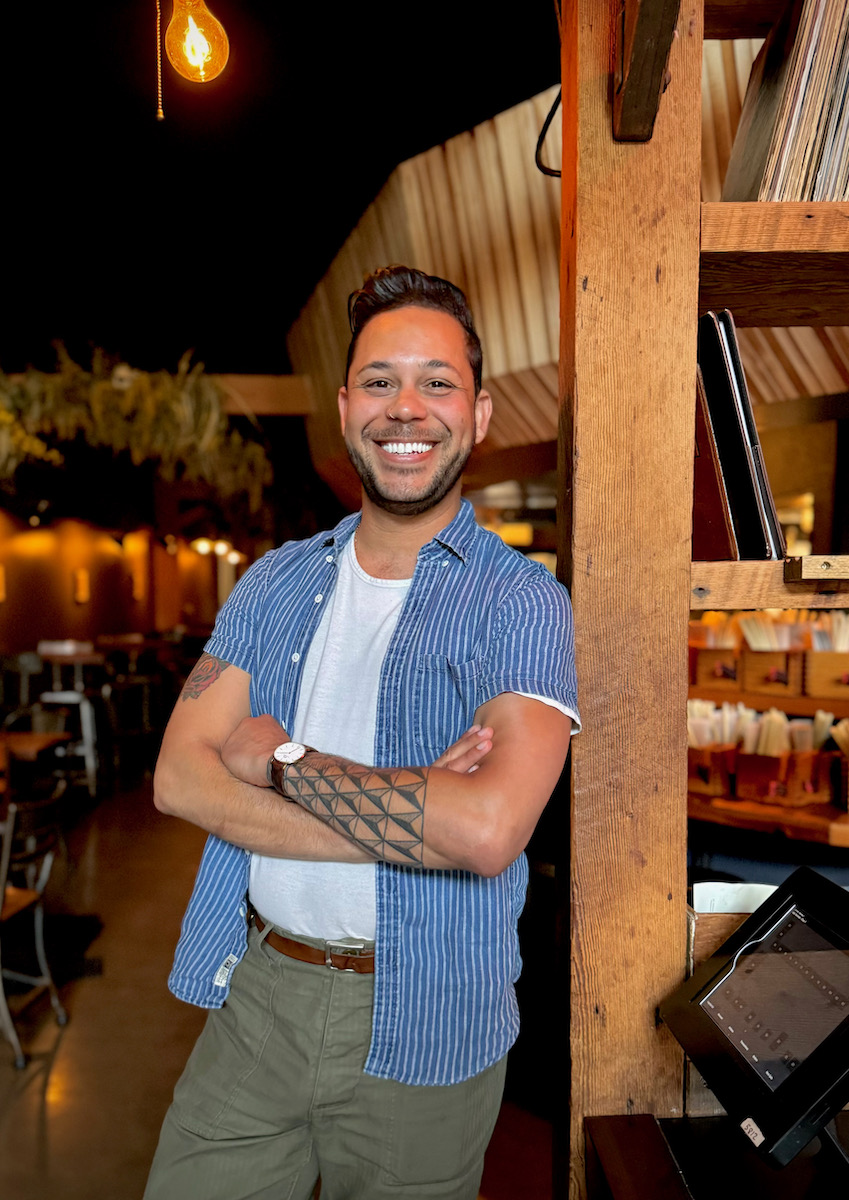
Landon Hayes of Ramen Shop
Oakland, CA
Vintage-clad hipsters vie for counter seats at the now infamous Ramen Shop for an opportunity to experience a Californian take on Japanese classics. Pickled plates of acidic napa cabbage, briny turmeric daikon, and sour kohlrabi spark intrigue among elevated donburi dishes jam-packed with peak-season produce and responsibly raised meat rations. But the secret to Ramen Shop rests in the charming, kind, self-proclaimed, “purveyor of relationships,” Landon Haynes—the general manager.
Drawing from his Mississippi and Italian roots, Landon’s knack for hospitality comes naturally. His creative and fresh ideas spark innovative concepts that involve his diverse and queer staff. Building an inclusive and safe work environment is just as important as the contemporary architecture or private karaoke rooms that Ramen Shop boasts. As stated by Landon, “I feel a responsibility to hold a space of my queer staff and of my community where we can learn, educate and grow each other in positive and loving space.”
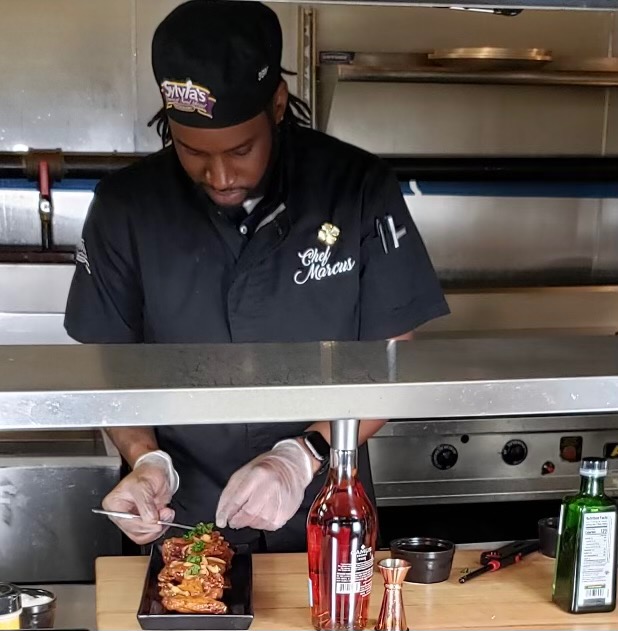
Marcus Woods of Sylvia’s Harlem Restaurant
New York, NY
According to the Woods family, the secret sauce to mounting a restaurant empire requires three ingredients: love, family, and ownership. A little luck goes a long way too. Sylvia’s is situated in the iconic Harlem neighborhood of New York City. The restaurant is a recipient of the prestigious James Beard America’s Classics Award. If love is all we need, then it makes sense why Sylvia’s is overflowing with abundance. Executive chef (and Sylvia’s grandson) Marcus Woods, a kind, ambitious soul, lives by the motto “lead with love.” He aims to cultivate his staff and uphold his grandmother’s secret and not-so-secret recipes.
Being a 100% Black owned family business, Sylvia’s evaded the dramatic effects of gentrification by direct ownership of the full city block they occupy. However, what makes Sylvia’s even more noteworthy is its philanthropic arm in the community. They also offer financial and emotinal support to the community via their Sylvia and Herbert Woods Scholarship Fund. Kenneth Woods, co-owner and son of matriarch Sylvia Woods, expressed that he would like to see Sylvia’s go down in history as a recognized Black institution for the generations to come. “This [what we have built here] is yours!”
Story by Monifa Dayo / Photos courtesy of Bombera, Atelier, Dakar NOLA, Justice of the Pies, Ramen Shop, and Sylvia’s
 Subscribe to TABLE Magazine‘s print edition.
Subscribe to TABLE Magazine‘s print edition.
